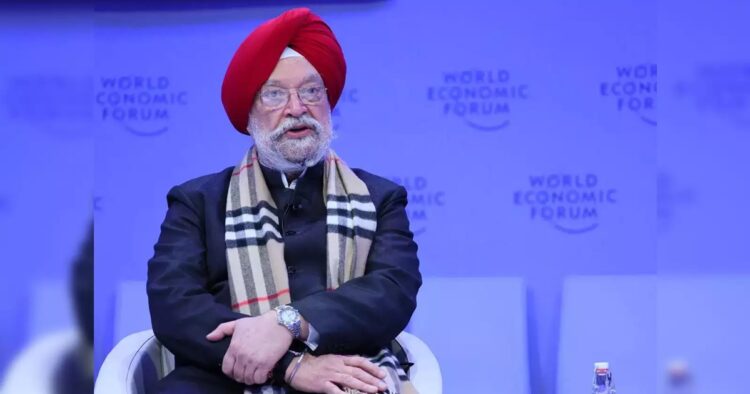In a significant development at the World Economic Forum 2024 in Davos, Switzerland, Union Petroleum Minister Hardeep Puri engaged in discussions with Nigerian Minister of State for Petroleum Resources Heineken Lokpobiri and Mele Kyari, the CEO of Nigerian oil major NNPC Limited. The meeting aimed at fostering collaboration between the two nations in the energy sector.
Nigeria, a major hydrocarbons producer in Africa, relies heavily on oil and natural gas revenue, serving as the backbone of its economy. In contrast, India, the world’s third-largest oil importer and consumer, meets its domestic demand through crude oil imports from various global sources, highlighting its dependence on international markets.
During the WEF 2024, Minister Hardeep Puri emphasized the rapid growth of energy consumption in Bharat, surpassing the global average by three times. He projected that Bharat’s energy demand would contribute to 25% of the global total in the next few decades. Puri underscored the importance of Bharat’s role on the world stage, stating that decisions made in the country have implications for the global energy landscape.
Puri also discussed the pragmatic approach taken by Bharat to address its energy needs, highlighting the challenges of availability, affordability, and sustainability. Importantly, he pointed out that Bharat’s pragmatic choices have prevented potential crises, such as a surge in oil prices beyond USD 200. With 85% of crude oil imports, India has strategically managed its sourcing to ensure a stable and affordable energy supply.
The discussions at WEF 2024 signify a diplomatic effort to explore potential collaborations between Bharat and Nigeria in the energy sector. As both nations grapple with the evolving global energy landscape, such partnerships could lead to mutually beneficial outcomes, addressing shared challenges and fostering sustainable energy practices on a broader scale. The meeting reflects a commitment to pragmatic solutions that balance the energy needs of these countries while contributing to global energy stability.
















Comments